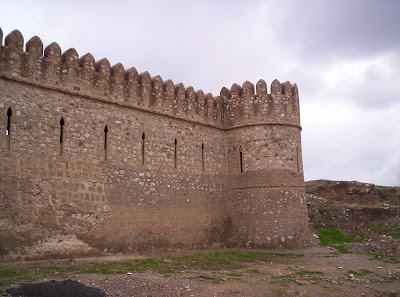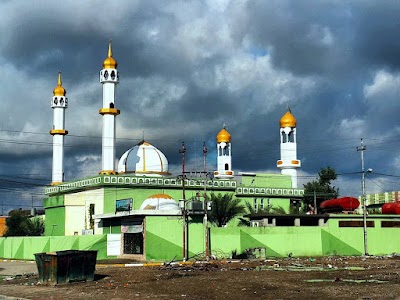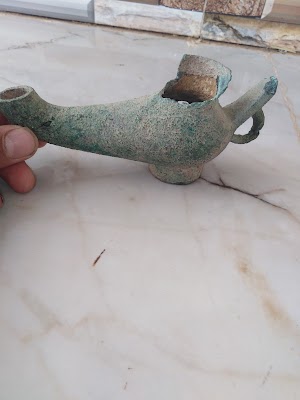Citadel of Kirkuk (قلعة كركوك)
Overview
The Citadel of Kirkuk, a remarkable testament to ancient history and culture, stands as one of Iraq’s most fascinating archaeological and historical sites. Located in the heart of Kirkuk, this ancient stronghold has roots that stretch back thousands of years, showcasing the region's strategic significance and diverse heritage. For foreign tourists eager to delve into Iraq's profound history, the Citadel of Kirkuk offers an enthralling journey through time.
The origins of the Citadel can be traced back to at least 3,000 years ago, with some sources indicating its establishment in the 3rd millennium BCE. Throughout the millennia, the site has been continuously inhabited, witnessing the rise and fall of various civilizations, including the Assyrians, Babylonians, Parthians, Sassanids, and Islamic empires. This ongoing habitation has resulted in a rich tapestry of cultural layers, each contributing to the Citadel’s storied past.
As you meander through the narrow, winding alleys of the Citadel, you'll encounter remnants that tell the story of its evolution. Initially fortified by the Assyrians due to its strategic hilltop location, the Citadel underwent significant development during the Babylonian and Parthian periods, with numerous structures added over time. The Islamic Golden Age brought further enhancements, cementing the Citadel’s role as both a defensive stronghold and a vibrant community hub.
Among the notable features within the Citadel is the Great Mosque of Kirkuk, dating back to the 13th century. This stunning structure highlights the Citadel's enduring religious and cultural significance. Its unique architecture, adorned with exquisite Islamic calligraphy and intricate designs, reflects the artistic and spiritual pursuits of its time.
An intriguing aspect of the Citadel of Kirkuk is its diverse population throughout history. The site has served as a melting pot of various ethnicities and religions, including Kurds, Turkmen, Arabs, and Assyrians. Each group has left an indelible mark on the Citadel, contributing to its rich and diverse character. As you explore the area, you’ll notice the multicultural heritage evident in local traditions, architectural styles, and even culinary delights.
The Citadel’s strategic position also made it a crucial military bastion. Its elevated location provided a vantage point for monitoring and defending against potential invasions. Over the years, the Citadel has withstood numerous sieges and attacks, showcasing its resilience against time and conflict. This enduring strength adds to the intrigue of visiting this historical site today.
For those with a passion for archaeological exploration, the Citadel presents a treasure trove of artifacts and structures awaiting discovery. Ongoing excavations have uncovered relics from various periods, providing valuable insights into the daily lives of its ancient inhabitants. As you walk through the site, you may encounter ancient pottery, remnants of old dwellings, and other archaeological finds that vividly bring history to life.
When planning your visit to the Citadel of Kirkuk, don't miss the opportunity to explore the surrounding city. Kirkuk itself is rich in history and culture, featuring additional sites of interest such as the Qishla of Kirkuk, along with various historical churches and bustling markets. The city's vibrant atmosphere, combined with the ancient allure of the Citadel, creates a truly enriching experience for any traveler.
In recent years, initiatives have been launched to preserve and restore the Citadel, recognizing its historical and cultural significance. However, like many ancient sites, it faces challenges from urban development and environmental factors. By visiting the Citadel, you not only gain a firsthand glimpse into history but also contribute to its preservation, fostering awareness and appreciation for this remarkable heritage site.
In conclusion, the Citadel of Kirkuk is an essential destination for history enthusiasts and cultural explorers alike. Its ancient walls, diverse heritage, and strategic importance make it a captivating location that offers a profound connection to Iraq's past. As you traverse this ancient fortress, you'll find yourself transported through the ages, deepening your appreciation for the resilience and richness of human civilization.





